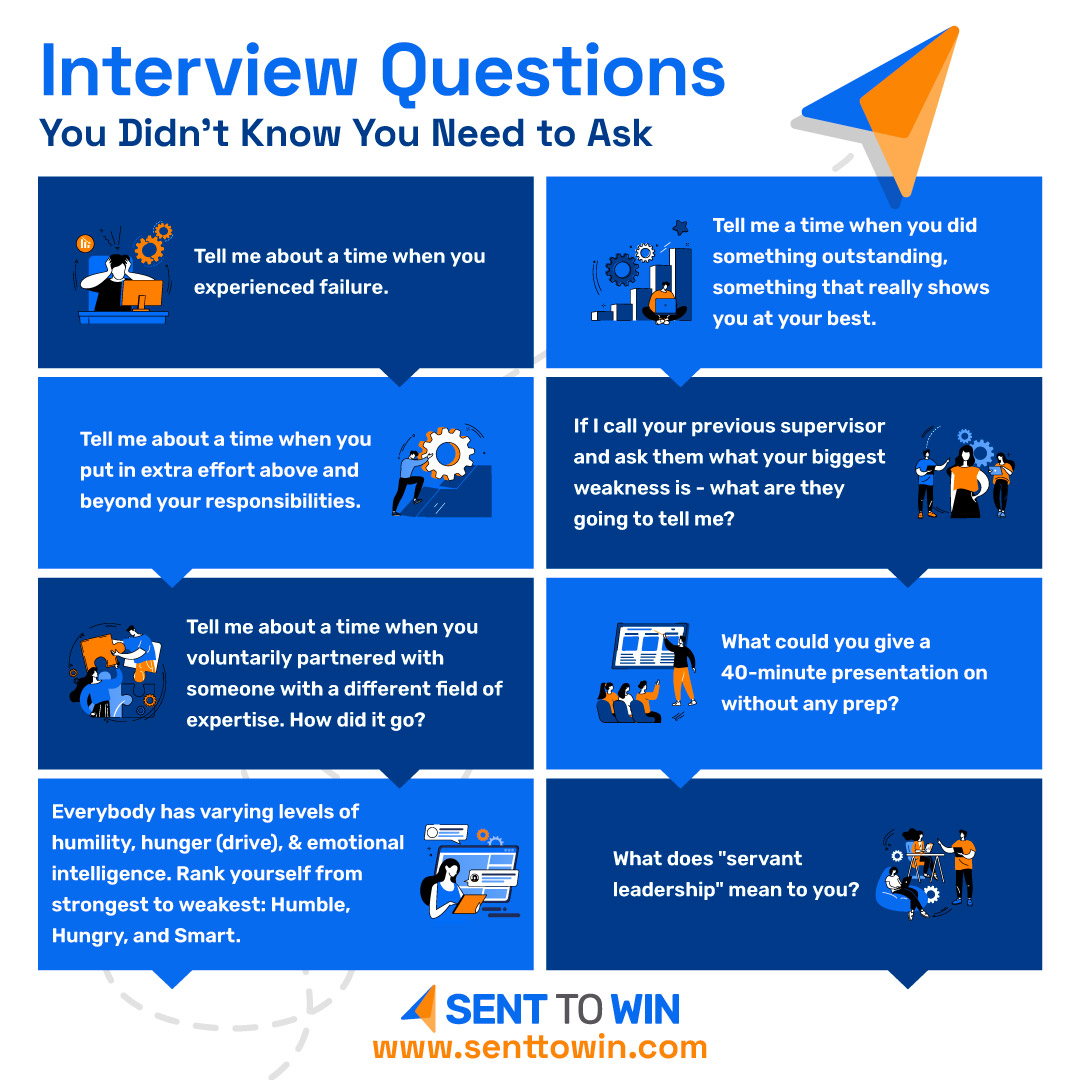Interview Questions You Didn’t Know You Need to Ask
Turnover is expensive.
It can easily cost 1/3 of an employee’s annual salary to replace them, and some estimates quote much higher figures. This is to say nothing of the lost productivity, bad performance, and lost clients that can result from having the wrong person in a given role.
Every business owner and executive knows that hiring is a high-stakes activity, and it’s important to get it right the first time.
However, the numbers are not encouraging here. According to a new book by Bart McCollum and Dr. Gerald Hannah, Ph.D., hair care company L’Oreal tracked the efficacy of their hiring methods and was not pleased with the results. Using traditional interview and vetting techniques, they hired several salespeople and then ended up having to fire 41% of them. The good news, however, is they shifted tactics and tested a Behavioral Event Interview style (BEI) for their hiring decisions, and they had much greater success. With employees selected using BEI, a method based on the research of Dr. David McClelland of Harvard, L’Oreal only had to fire 15% of its salespeople hired.
I sat down with Mr. McCollum – a CEO and cultural turnaround expert – and Dr. Hannah – a longtime business consultant and researcher – to understand how we can shift our understanding of the interview process and come out with successful outcomes again and again.
After all, the best way to reduce turnover is to pick the right candidate as much as possible.
“It’s really hard to interview well,” Bart explains, “and most people are really bad at it. There’s only so much you can know about a person and how they’ll behave and perform based on a conversation.”
Dr. Hannah nodded his agreement.
“Yes, but thankfully Dr. McClelland’s work on ‘behavioral competencies’ led to a whole methodology on selecting top talent. When put into practice, it doubles the effectiveness of the selection process.”
When I asked how this was possible, they explained that typical interview questions are designed to draw correlations from hobbies, attitudes, and answers to hypothetical questions with future performance. It doesn’t really work, because people are going to tell you what they think you want to hear. So what should you be asking a candidate instead?
“Targeted questions,” Dr. Hannah replies. “You’re looking for examples of specific behaviors they’ve displayed in the past. So tell them, ‘Use the pronoun “I,” not “we,” and have them keep their answers to things that have happened in the last two or three years. You might ask, ‘Tell me a time in the last 2 or 3 years in which you experienced failure.’ Then I count to about ten. If they don’t answer by then, I add, ‘Or when you experienced a major, major disappointment at work.’ They’ll come up with something. But what’s interesting is a very talented person will say, ‘I can think of 3 or 4. Which one do you want?’ This shows self-confidence, achievement orientation, and humility, which correlate to emotional intelligence behaviors.”
While the candidate is answering, they explain, take notes on what behaviors they are describing. Ask them what they were thinking, feeling, and specifically doing in regard to the past event you asked them about. Doing this correctly requires a little bit of reading up on core behavioral competencies, as well as figuring out what sorts of behaviors and values are most crucial for success in your company.
“You need a clear set of values,” Bart says. “Ask, ‘What has made us successful before?’ and then identify specific behaviors that led to those outcomes.’ So for example, in my current company, we’re hiring people who need to be very responsive and organized. So we’ll ask people in an interview, ‘How many unread emails do you have in your inbox right now? Show me right now.’”
Some people will show him a clean inbox, others will say they let it get to 20 emails and then block out time to get it back to zero, and still others… have 52,000 unread emails.
For certain roles, that isn’t going to matter much. But for a role that requires quick responses and organization, you want the guy who has to keep his inbox at 0.
This method of doing this is not looking for answers or ideas, it’s looking for objective reality. How many unaddressed emails do you actually have in your inbox right now? What behaviors can you prove to me that you exhibit?
This is far more effective than having people answer hypothetical questions, in which they amazingly always perform perfectly. A good hiring manager needs to look for what has been done already.
“It’s scary how accurate the behavioral method is,” Dr. Hannah says. “You will see a great resume sometimes, with outstanding support letters… but then you do the behavioral interview and there is no data for relevant behaviors. This person seemed good, but there is no specific evidence for that in what they are doing, so most of the time, that really does mean you’d be right not to hire that person.”
Bart agrees.
“You’re asking people to give you an example of something specific they’ve done in the past, setting the scene, and getting particulars. The behavioral strategy is difficult, but it’s effective.”
If you’d like to learn more about the behavioral competencies behind this hiring method, check out McCollum and Hannah’s new book, You Before Me: A Novel about How Smart Leaders Overcome Foolish Behaviors to Build Amazing Organizations.


“See? I knew you were absolutely the right man for the job when I said, ‘What is your biggest weakness?’ and you said, ‘I work too hard.’ That’s just what we’re looking for!”
Quick Hits
- CNBC offers 5 budgeting strategies to combat the challenges of inflation.
- Christian billionaire and philanthropist Bill Hwang found guilty of market manipulation, and defrauding banks.
- A slowdown in consumer price increases in June has some investors optimistic for a future interest rate cut.
- Christian research group Barna releases results of their “Faith and AI” survey, chronicling
- Christians’ attitudes toward the ethics of artificial intelligence technology.
Our “Interview Questions” graphic was generated using AI prompts. Guess the prompt for your chance to win Sent To Win gear. Just reply to this email with your best guess.
For Kingdom Leaders, By Kingdom Leaders
Bringing Kingdom-minded leaders like you fresh perspectives and insights on business, finance, and leadership trends.




